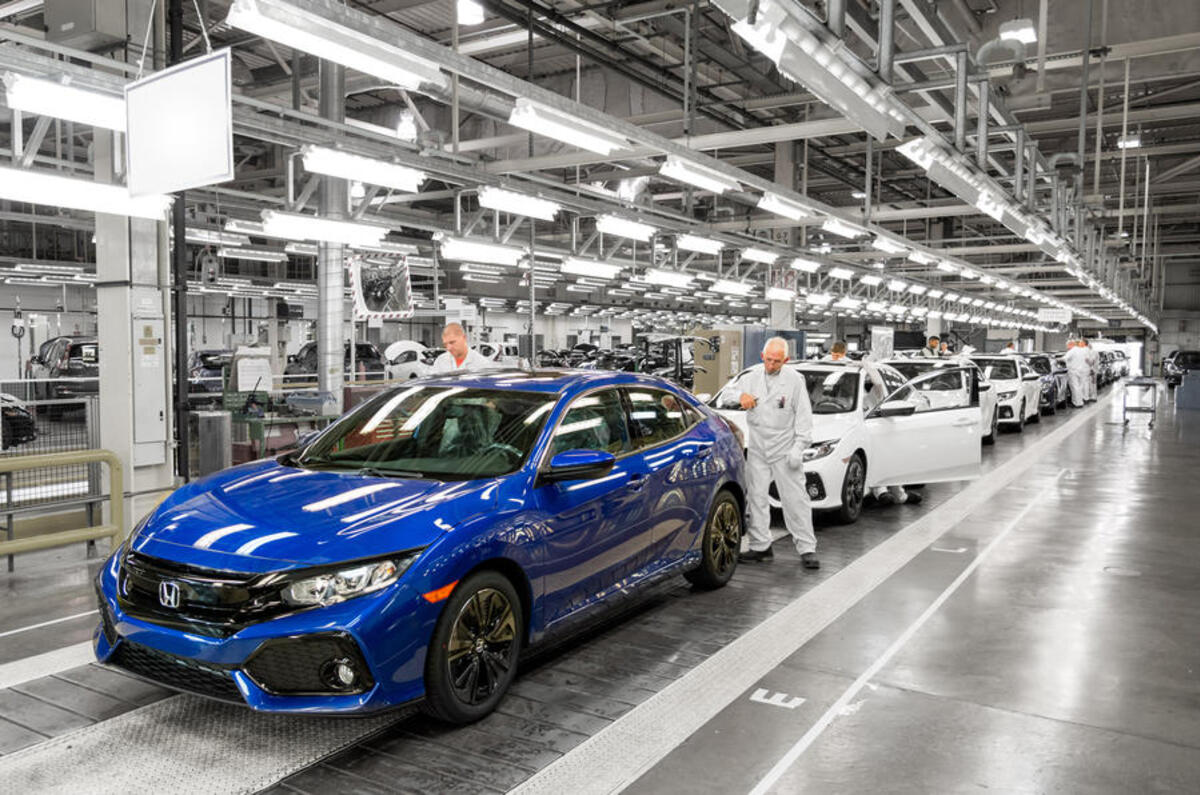The negative effects of Brexit are already being felt and emphasise the need for faster-paced government negotiations, Society of Motor Manufacturers president Tony Walker has said.
During his speech at the 101st annual SMMT dinner, Walker said Britain’s car industry requires hard answers and certainty from the government, in order to prevent trends of falling consumer confidence and slowing car sales from reaching a critical point.
“We [the industry] will never stop striving to be competitive,” he said, “but we ask government to help provide the conditions in which we can compete. Like every industry, we need certainty now.”
Brexit has been directly linked to falling domestic demand for new cars, which decreased by 2.9% in October alone and has seen predictions for the nation’s car production output fall by 700,000 units for 2017 to 1.73 million. Exports of British-built cars, by comparison, grew by 5% last month, ensuring that the nation’s overall output actually grew by 3.5% across the four months.
Walker revealed that 1100 lorries supply parts from Europe to the car industry per day, with the majority arriving without any customs checks. HM Revenue and Customs figures show that these contribute £35 million worth of components to car plants a day, with almost 80% of the cars they help to make being exported – most to Europe.
These close ties with Europe for supply and export, Walker explained, emphasise the importance of securing a tariff-free deal with the continent. If no deal is made, Britain’s departure from the European Union on 29 March 2019 could leave the industry faced with at least £4.5 billion of World Trade Organisation tariffs per year.
“We have delivered an export-led renaissance,” said Walker. “But we are not complacent. A hard Brexit would undermine all that we have collectively achieved. It is a real threat – a hurdle we cannot ignore.”
Alongside his calls for quicker negotiations, Walker also asked the government to understand the importance for continued development of combustion engines in order to up the rate of progress in green technology. In response to the UK’s recent announcement of a ban on pure petrol and diesel cars from 2040, he said “the internal combustion engine is not dead – it is the path to a cleaner and greener future.
“Banning diesel and petrol cars might be a sound bite that works but it’s not a policy that works. If you ban them you disrupt the new car market and you hamper investment in the electric, emission-free vehicles of tomorrow. You set the future back.”




Join the debate
Add your comment
A few points here:
A few points here:
1. So output is up 3.5% and exports grew by 5%. Sounds awful!
2. The government's new industrial strategy intends to increase the percentage of components produced domestically, reducing our reliance on these imported components.
3. The uncertainty surrounding Brexit is the result of a government that, rather than just getting on with leaving, is hell bent on anchoring us to Europe against our will.
4. The Cost of Living has done more to damage competitiveness than Brexit possibly could. Indeed, reducing the supply-demand imbalance in housing, as well as dropping tariffs on imported food, clothing and footwear are just some of the great opportunities presented by Brexit that will help to make all of our domestic industry more competitive.
British democracy
A proper BREXIT will mean that a tariff-free trade deal will probably not be done with the EU. There won't be an EU after the UK has left anyway.
Car manufacturers should get ready for tariffs to be implemented. 23rd June 2016 to March 2019 is the transition period.
It will take a new BREXIT government to ensure that the UK leaves the EU properly.
Dragging up the vote over and
Dragging up the vote over and over is so dull. Its done. More important now is that the UK government is about to sell out the entire nation by hideously bribing the EU for its permission to sell US overpriced dodgy VW's. A poll by even the EU loving Guardian showed 71% of the population forbid the government paying this. Theresa May is going to do it anyway. Its not Brexit damaging us, its the Remain influences stopping us standing strong and getting walked on by appeasement. Well done 'Remain' you cut our nose off to spite your face, I hope engineering that 'told you so' was worth the cost.